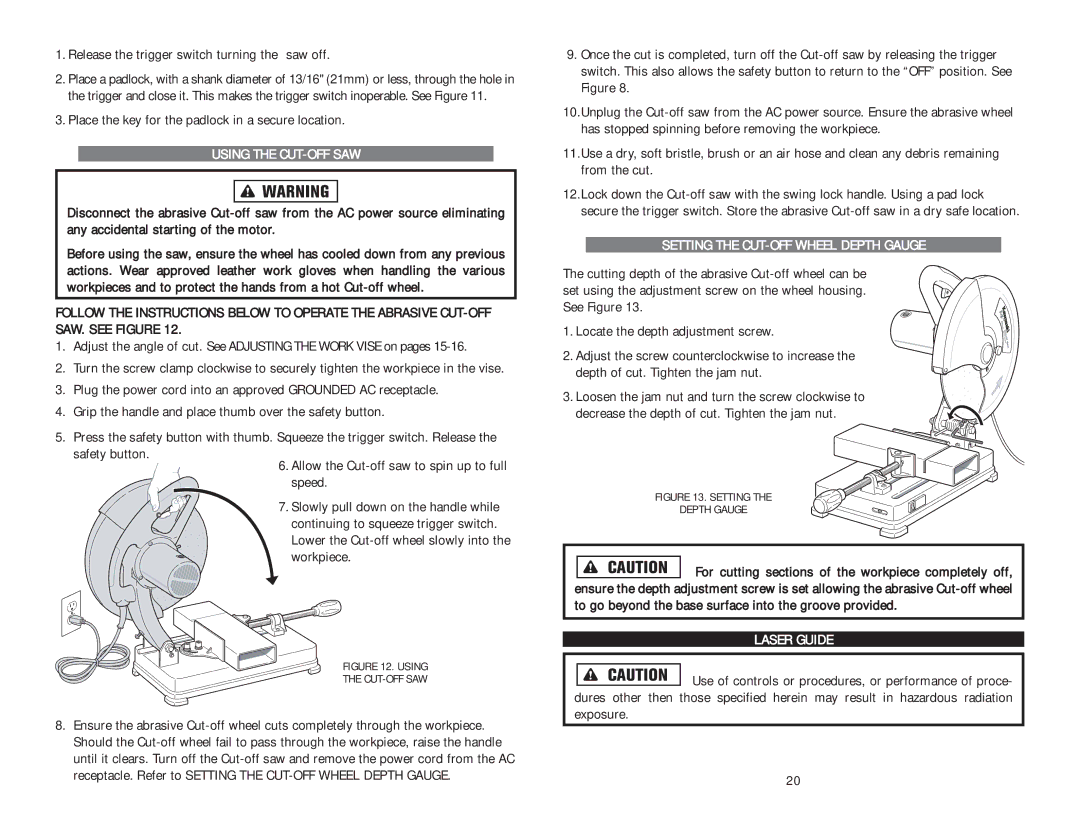691204 specifications
The Kawasaki 691204 is a powerful engine designed for a variety of heavy-duty applications, specifically in the domain of outdoor power equipment. This engine exemplifies Kawasaki’s commitment to performance, reliability, and advanced technology, making it a preferred choice for both commercial and residential users.One of the main features of the Kawasaki 691204 is its impressive horsepower output, which is optimized for tasks requiring significant power such as lawn care, landscaping, and industrial applications. Its robust design allows it to handle even the toughest jobs with efficiency, ensuring that users achieve their desired outcomes without prolonged downtime.
The Kawasaki 691204 incorporates cutting-edge technology, including an overhead valve (OHV) design. This feature not only improves the engine's overall efficiency but also enhances its torque curve, allowing for better performance at various operating speeds. The OHV configuration also contributes to lower emissions, aligning the engine with modern environmental standards and regulations, making it an eco-friendly option without compromising power.
Another significant characteristic of the Kawasaki 691204 is its exceptional durability. Constructed from high-quality materials, this engine is built to withstand demanding conditions and extended use. The engine’s enhanced cooling system ensures optimal operating temperatures, reducing the risk of overheating and prolonging its lifespan. Moreover, the 691204 is designed for easy maintenance, featuring accessible components that streamline servicing tasks, thus enhancing user convenience.
Furthermore, the Kawasaki 691204 is known for its smooth operation. Thanks to the advanced balancing technology integrated into the engine, vibrations are minimized, resulting in a more comfortable user experience. This is particularly important for extended usage, as it reduces fatigue and increases productivity.
In summary, the Kawasaki 691204 is an outstanding engine characterized by its power, efficiency, and durability. Equipped with advanced technologies such as the OHV design and a high-performance cooling system, it meets the demands of both commercial and residential users alike. With its user-friendly maintenance features and smooth operation, the Kawasaki 691204 stands out as a reliable choice for those seeking a high-performance engine to tackle a wide variety of outdoor power equipment tasks.

